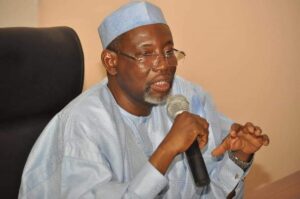Tertiary education reforms, key to rebuilding COVID-hit economies —World Bank
The World Bank says that apart from smart investments, reforms in tertiary education systems are very instrumental to rebuilding COVID-hit economies and the transformations needed by societies.
The bank said this in a statement issued in Washington after the release of a new report it presented to the United Nations’ General Assembly (UNGA) meetings in New York.
Tertiary education is vital for the development of human capital and innovation to spur long term growth, according to the report.
It said that the new policy approach paper entitled, “Steering tertiary education, towards resilient systems that deliver for all,” reinforces the imperative that every country should invest thoughtfully and strategically in diversified, well-articulated and inclusive tertiary education systems.
The report also examined the impact of the COVID-19 pandemic on the global tertiary education sector and identified policies that could promote a resilient recovery.
It proposed a framework to guide policies and investments in tertiary education, comprising five principles to steer tertiary systems and institutions toward greater relevance and impact.
“Nations should build diversified systems by shaping a strong contribution of tertiary education to both growth and competitiveness and also to social cohesion and human development,” the report said.
It added that positioning tertiary education in a lifelong learning context with flexible pathways allowing for access to different types of institutions and greater adaptability to the labour market needs and opportunities was vital.
“Investing smartly in new technologies, profiting from digitalisation to support improvements in teaching and research capacity, innovation and agility in service delivery and the building of a digital ecosystem, which, overall, make tertiary education systems more resilient.
“Ensuring equity in access and financing, acknowledging that inequity is a form of injustice and acting to ensure that equity and inclusion in access and success are a driving ethos for an effective and relevant tertiary education system.”
Other recommendations were achieving efficiency in resource utilisation and acquiring resilience in service delivery for learning to continue.
Mamta Murthi, the World Bank Vice President for Human Development, said that tertiary education was central to the development process and it was essential for the creation of opportunities, competitiveness and growth.
“We encourage countries to address the challenges brought by the pandemic, to build back better, more equitable, efficient, and resilient tertiary education systems.
“This will build the essential professional expertise required to drive public and private sector development, including, among others, the doctors, nurses, teachers, engineers, technicians, scientists, and managers needed to support effective education, health service delivery and drive productivity and growth,” he added.
Mr Jaime Saavedra, World Bank’s Global Director for Education, said that building back better tertiary education systems required a holistic view of the tertiary ecosystem, removing the barriers that lead to isolated siloes of universities, technical institutions, colleges, and tertiary technical and vocational education institutions.
According to him, they should all be part of one single ecosystem that assures opportunities of lifelong learning for all.
The bank said it had been providing support for tertiary education reforms and innovation since 1963, by collaborating with governments, tertiary education institutions, and other stakeholders across the globe.
It added that it would continue to support the development of agile, equitable, and efficient tertiary education systems and dynamic tertiary education institutions.




